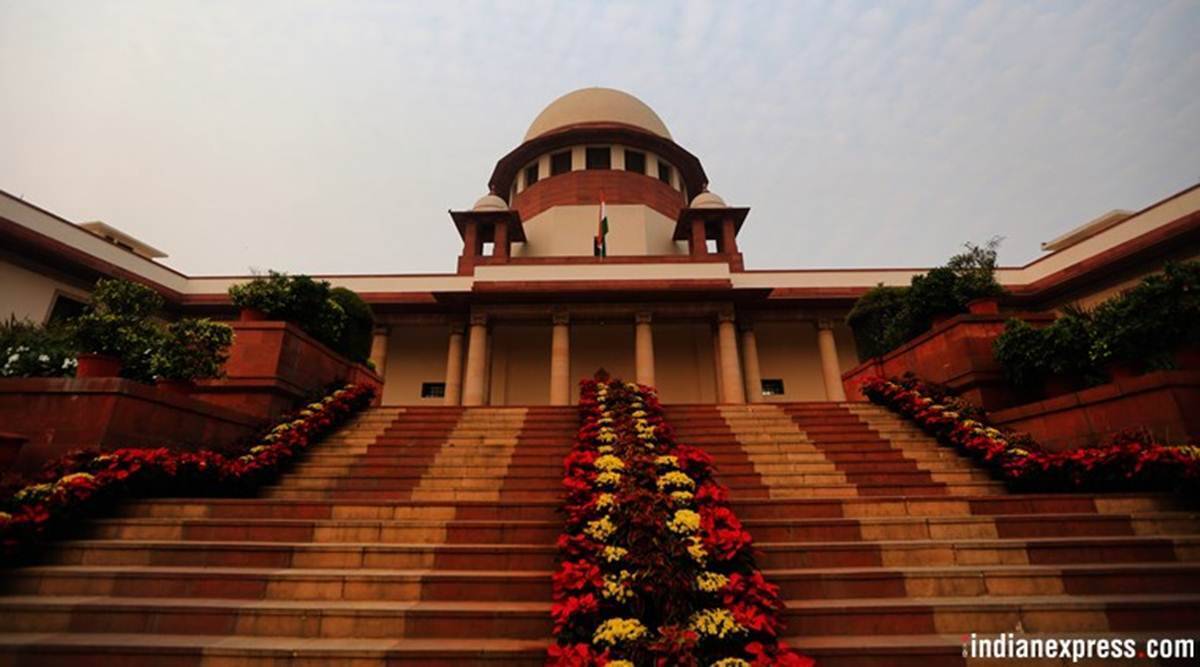The Supreme Court Thursday said that a person engaged in other professions can be allowed to provisionally enroll with a bar council but has to clear the All India Bar Examination (AIBE) and upon clearing the test, will get six months to decide whether he or she would like to be an advocate or continue with the other job.
The top court said that the Bar Council of India (BCI) will have to consider whether a fresh AIBE examination needs to be conducted for those who seek to return to advocacy after getting their license suspended to take up other jobs, as they would have lost touch with the legal profession.

A bench of Justices SK Kaul and MM Sundresh was hearing an appeal filed by BCI challenging the Gujarat High Court verdict where it has allowed persons with other employment, to enroll as advocates without resigning from their jobs.
Read | SC modifies order on eligibility criteria for Civil Judges in Delhi for promotion as District Judges
The top court said that BCI may allow provision enrolment for persons in other employments giving them a window of six months for them to decide after clearing the AIBE, whether they want to continue with advocacy or continue in their job.
The bench said that it is inclined to accept the suggestion of amicus curiae and senior advocate KV Vishwanathan that the BCI may adopt a process by giving provisional enrolment to enter in a register say B with an appropriate undertaking that such enrolment would not be interpreted as a right to practice in the intervening period.
“If a person continues to be in employment then they would have the requirement of taking the Bar examination again at the appropriate stage when they seek to give up employment and enroll themselves at the Bar. The period of six months suggested by the amicus is good enough for a person to take a call whether they want to be in employment or continue with the profession in law”, it said.
The bench clarified that it should not be a case where a person takes the examination and continues in employment for a period of time says 10 years and thereafter seeks seniority based on the exam taken years ago.
The top court asked the BCI to disclose who are the members of the high empowered committee and suggested that persons who can afford time for the cause should be involved instead of retired judges or senior advocates.
It also directed the state governments to provide appropriate security to the inspection teams of BCI, which goes into different law colleges to inspect the infrastructure and other facilities of the college or the university, after it was flagged that there were incidents of non-cooperation.
Concerning placement of junior advocates, the amicus suggested that rather than making it compulsory, which may hit the hurdle of the constitutional validity of such step, it would be appropriate if such process is incentivised like they would be preferred in chamber allotment, empanelment for PSUs, appointment in the judiciary and contesting bar elections. He said that taking five juniors may not be feasible and one junior will be sufficient.
“At least start with one junior, no one wants five juniors. Make it for 18 months, he will be paid a stipend. Keeping a junior makes your performance better. In this profession, no one can do everything all by himself,” Vishwanathan said.
In its recent affidavit, the BCI has said that it has earmarked about 500 law colleges throughout the country which are sub-standard/below standard and a team led by some former judges/senior advocates and others plan to conduct surprise visits of such establishments and in case of any deficiencies, steps would be taken for their closure.
Also read | Flexible working models must to catalyse ‘new normal’ for women at workplace: Experts
It had said that it constituted a high-powered committee that would look into the issue of compulsory chamber placement of five juniors by senior advocates or advocates having 25 years of standing at the Bar.
The council said it is proposed that the legal education committee of the BCI and the advisory board would consider introducing a State Level Entrance Test for admissions to law colleges in its next meeting.
Most Read 1Sunny Deol says he doesn’t like how Shah Rukh Khan has turned actors into a ‘commodity’, Salman has made them into ‘bodybuilders’ 2Aishwarya Rai cuts birthday cake at an event with daughter Aaradhya Bachchan, refuses to eat as she is observing Karva Chauth. Watch video 3Amit Sadh worked as security guard in ‘Delhi’s most expensive neighbourhood’, would pay Rs 25 to sleep in a community centre 4Between a 21-year-old graduate going viral for crying over a 9-5 job, and Narayana Murthy’s 70-hour work week, is there a middle path for Gen Z? 5Vijay: ‘There’s only one Superstar and there’s only one Thalapathy’
The BCI has said that it is not an executive body and relies upon the universities to close such colleges and/or upon the government to close such universities which despite the requests have been casual on the use of unfair means in LLB/LLM exams and awarding the LLD.
“Thus as a last resolve the BCI is considering withdrawing the approval granted for running courses of legal education to such university,” it said and pointed out a slew of difficulties faced by the council in regulating legal education across the country.
Also ReadBihar BSSC Inter Level exam: check updated list of exam centresLooking for government jobs? Here are a few for people aged between 30-35…UPSC Civil Services 2022 Result Declared: Here's how much the top 10 rank…UPSC results: Gahana Navya James, Kerala Research scholar cracks it witho…
It said that almost 90 per cent of the government-run colleges/institutions have an acute dearth of infrastructure and faculty, many unfilled vacancies last 15-20 years, and in spite of requests/warning the state governments/Universities are not serious in this regard.



